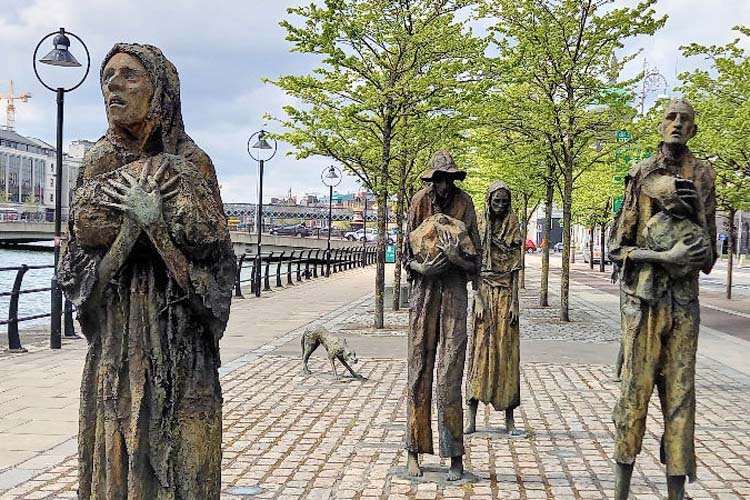Louth County Council is to consider a suggestion from Councillor Pio Smith that they erect a statue in remembrance of famine victims who died in Drogheda and those that emigrated through the port to escape it.
There is much to be said for erecting such a famine memorial in Drogheda because during the famine years, the town was the port of departure for over a million people who were forced to emigrate. This was the reason why the National Famine Commemoration was held in Drogheda in May 2012.
“The choice of Drogheda as host town is particularly significant,” said the then Minister for Arts, Heritage and the Gaeltacht Jimmy Deenihan.
Many of the rural poor in County Louth died from hunger and disease or emigrated during the period as relief committees were unable to feed the starving masses.
Drogheda Port was the point of departure for many thousands of emigrants seeking to escape famine and poverty in this country and a better life in England, Australia or the USA.
Many of them had walked long distances, often with young children in tow, to Drogheda where they hoped to board one of the many boats sailing from here.
Thomas Bowden, who is buried at the old Newtownstalaban graveyard, was the master of one of these boats, the S.S. Grainneuaile which sank on April 15th 1847.
He died along with an estimated 22 other people who had sailed to Liverpool in the hope of continuing their journey to America or elsewhere to escape the famine.
These poor miserable souls had left their homes, walked long distances, sailed across to England only to be denied entry to Britain and were sent back to Ireland on the boat in which they had arrived.
It is to our shame that there is no permanent memorial to them in Drogheda. The memorial by Rowan Gillespie at Custom House Quay in Dublin is known the world over but there really should be another on the banks of the Boyne.





